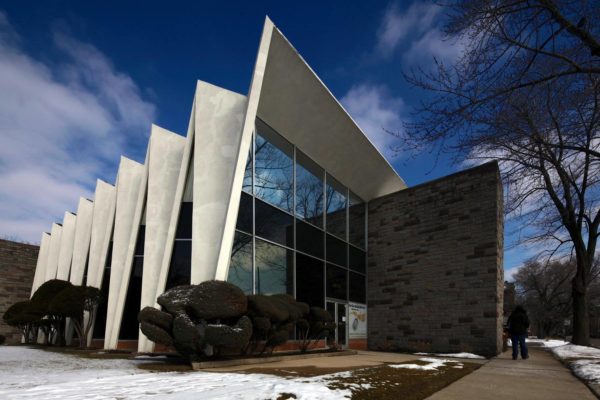GN Bank, the last Black-owned bank in Chicago, is struggling to stay afloat despite financial support being offered by local politicians.
The troubled institution has been faced with fines and actions placed against it by the government — all the while trying to continue serving the Chicago’s Black community.

The bank, formerly known as Illinois Service Federal Savings and Loan (ISF), was operating two branches until closing one located in the Chatham section of Chicago in the summer of 2021. Now, the financial institution operates out of one branch and has a small staff.
GN Bank was founded in 1934 to meet the needs of Blacks arriving in Chicago from the South as part of the Great Migration. Black Americans came to Chicago seeking better jobs and the opportunity to purchase a home. However, traditional banks would not service Black Americans, leaving them to establish their own banks. For 74 years, the bank was able to sustain itself in Chicago’s Black American community. Yet the Great Recession of 2008 hurt GN Bank as a result of high community unemployment and mortgage delinquencies. By 2016, the bank was sold to Dr. Papa Kwesi Nduom, a businessman from Ghana, who wanted to invest in a Black-owned bank in the United States. Immediately, Nduom invested $9 million into the bank.
Nduom’s endeavor has not been without challenges. Although Nduom owns several branches of GN Bank as well as hotels in Ghana, he had no banking experience in the United States. In 2017 the City of Chicago deposited $20 million into the bank in an attempt to show how the government could invest in its communities. Within three years, a banking official at GN Bank returned the money to Chicago, acknowledging that the bank could not afford to pay back the deposit.
In the five years that the Nduom family has led the financial institution, the bank has downsized to one branch location. The staff has been cut. Customers – many with lifelong, intergenerational relationships – do not trust the new leadership as a result of mortgage discrepancies. And GN Bank can no longer offer home loans as a banking product which was the heart of its original intention.
Finally, in 2020, GN Bank was placed under banking restrictions by the Department of Treasury when regulators discovered “new violations of law, rule or regulation.”
According to court filings made by the Office of the Comptroller of the Currency (OCC) in 2020, the bank was cited for “unsafe or unsound banking practices relating to strategic and capital planning, credit risk management, and governance.” The OCC charters, regulates, and supervises all national banks.
The document states the OCC “intends to initiate new cease and desist proceedings” against the bank for engaging in “unsafe or unsound banking practices, including certain practices relating to the Bank’s asset quality, credit risk management, audit and internal controls, earnings and capital, and corporate governance policies.”
Yet the Nduoms aren’t solely responsible for GN’s struggles. Regulators have failed to carry out a federal mandate to “preserve and promote” Black-owned banks, a ProPublica investigation has found.
Leading up to the Nduoms’ acquisition, the federal Office of the Comptroller of the Currency ordered the bank to reduce the risk in its loans, which led to less revenue. Then, the agency signed off on the new owners, even though they lacked banking experience in the United States and had investments abroad that posed known regulatory risks. Since then, the bank has been under close watch, yet the Nduoms have made a series of decisions that diminished the bank’s profile and quality of service.
Political Support to Keep Black-Owned Banks Afloat
There are currently an estimated 17 Black-owned banks throughout the United States. Many have shuttered their doors as they could not remain open due to financial obligations.
U.S. Rep. Bobby Rush, whose district includes a substantial portion of Chicago’s South Side, recently co-sponsored a bill to develop an office within the Office of the Comptroller of the Currency (OCC). The purpose of the office would be to support Black-owned and community banks. The bill also proposes that the office will loosen regulations, providing financial institutions with more flexibility in their operations.
“In Chicago, we’re down to one Black-owned bank, GN Bank, and it’s on life support even as we speak,” Rush told ProPublica. “It’s one sure sign that the economy in the Black community is fragile at best.”




